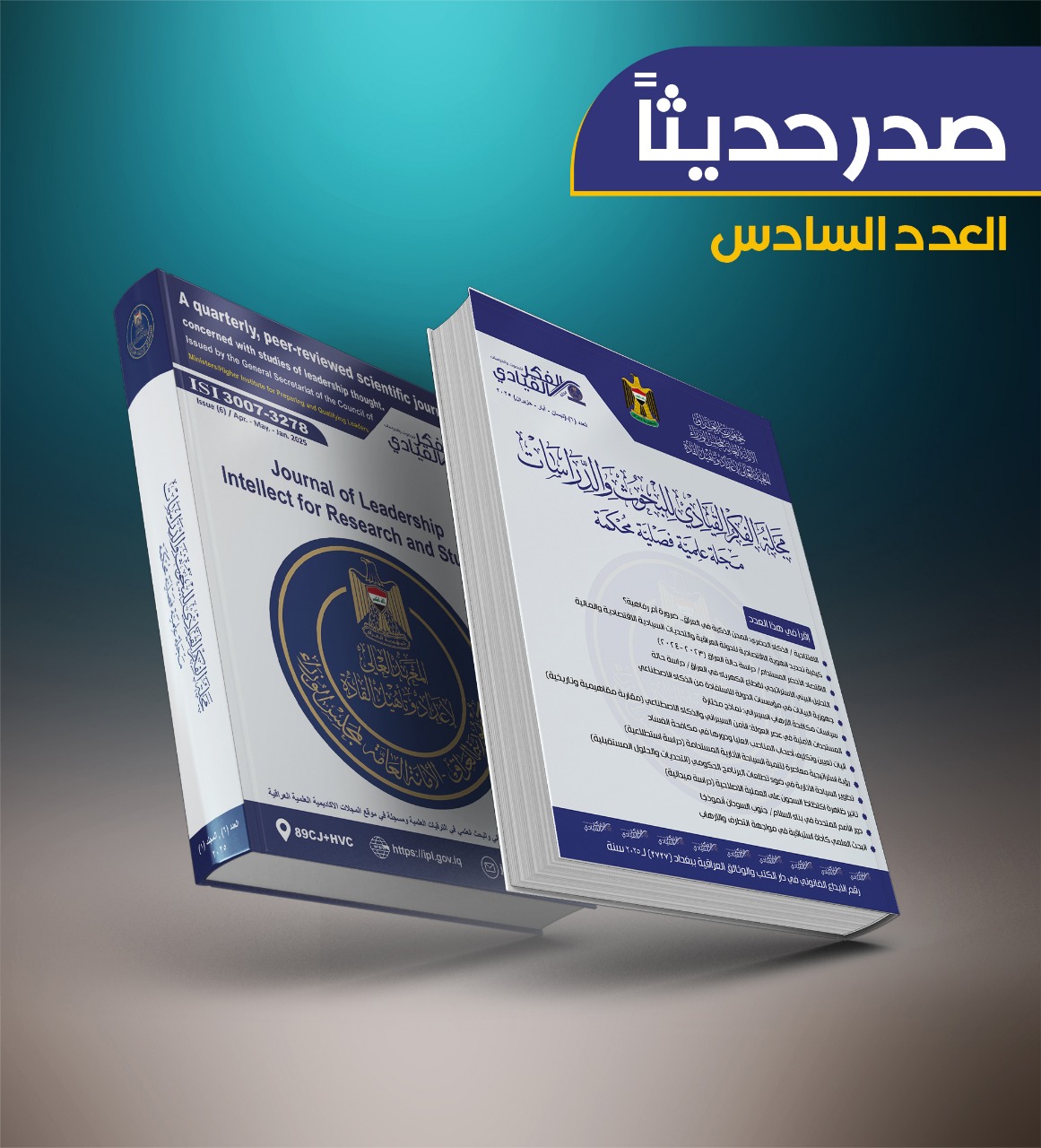Abstract
economy constitutes the cornerstone of state building and an essential factor for stability, because it contributes to the creation of social values and the representation of the political form of the state. Iraq suffers from difficult circumstances due to structural imbalances, despite the economic resources it possesses , as the State’s economic administration made the Iraqi economy a unilateral economy dependent on the source of oil only, Therefore, we must turn to economic reform in order to create comprehensive development based on the experiences of other countries, by giving a role to the private sector as well as diversifying our country’s economy, relying on the economic components, including the existing human resources, to formulate a developmental start for the Iraqi national economy. After the liberation of Iraq in 2003, it became clear that the political forces did not have an intellectual approach to the Iraqi economy and its transformation into a market economy, as the economic system was changed from socialist to market economy, and the legislative aspect was neglected, and a clear strategic vision was not developed for the next decade or two. The decision-makers did not have clear priorities with the aim of transforming the oil sector from being a dominant and financing sector to a wealth-producing sector by contributing to stimulating other economic sectors. Accordingly, the research is summarized in two strategic axes: the reality of the Iraqi economy, with all its problems and administrative and financial crises that are not commensurate with the capabilities that characterize the identity of the Iraqi economy in this geographical location integrated with its resources, as well as the nature and quality of its human resources. This topic was discussed in the first chapter. As for the second chapter, it is related to the future prospects of the Iraqi economy that are required to be achieved and reached as a goal and objective of the research, and in a way that is commensurate with the reality of the Iraqi economy, its size, The type, and level. According to the hypothesis, it is an issue that revolves around the philosophy of management that drives economic activities and their variables, which relates first and last to the creation of leadership and leaders and their role in thinking and studying decision making and how to make those decisions, implement them, and follow up their implementation.
Keywords
conflict of decisions
fragility
Future Prospects
Governance of economic management
integration of resources.
Abstract
يشكل الاقتصاد حجر الأساس لبناء الدولة وعاملًا جوهريًا للاستقرار لكونه يسهم في خلق القيم الاجتماعية وتمثيل شكل الدولة السياسي، ويعاني العراق من ظروف صعبة بسبب الاختلالات الهيكلية، رغم ما يمتلكه من موارد اقتصادية حيث جعلت الإدارة الاقتصادية للدولة أن يكون الاقتصاد العراقي اقتصادًا أحاديًا يعتمد على مورد النفط فقط، لذلك يجب التوجه إلى الإصلاح الاقتصادي من أجل صناعة تنمية شاملة مبنية على تجارب الدول الأخرى، بإعطاء دور للقطاع الخاص وكذلك تنويع اقتصاد بلدنا، بالاعتماد على المقومات الاقتصادية بما فيها الموارد البشرية الموجودة لصياغة انطلاقة تنموية للاقتصاد الوطني العراقي. بعد تحرير العراق عام ٢٠٠٣ تبين بشكل واضح عدم وجود منهج فكري لدى القوى السياسية للاقتصاد العراقي وتحويلها إلى اقتصاد السوق، حيث تم تغيير النظام الاقتصادي من الاشتراكي إلى اقتصاد السوق وتم إهمال الجانب التشريعي ولم يتم وضع رؤية استراتيجية واضحة المعالم لعقد أو عقدين قادمين، حيث إن أصحاب القرار لم يكن لديهم وضوح الأولويات بهدف تحويل قطاع النفط من كونه قطاعًا مهيمنًا وممولًا إلى قطاع منتج للثروات وذلك بمساهمته في تحفيز القطاعات الاقتصادية الأخرى. وعليه يتلخص البحث بمحورين استراتيجيين هما واقع الاقتصاد العراقي بكل ما هو عليه من إشكالات وأزمات إدارية ومالية لا تتناسب مع الإمكانات التي تتميز بها هوية الاقتصاد العراقي في هذا الموقع الجغرافي المتكامل بموارده، فضلًا عن طبيعة ونوعية موارده البشرية، وهذا الموضوع تطرقنا إليه في الفصل الأول، أما الفصل الثاني فيتعلق بالآفاق المستقبلية للاقتصاد العراقي المطلوب تحقيقها، والوصول إليها كهدف وغاية للبحث، وبما يتناسب مع واقع الاقتصاد العراقي وحجمه ونوعه ومستواه، وذلك حسب الفرضية، فإنها مسألة تتمحور بشأن فلسفة الإدارة التي تحرك النشاطات الاقتصادية ومتغيراتها التي تتعلق أولًا وأخيرًا بصناعة القيادات والقادة، ودورها في التفكير والدراسة في صنع القرارات، وكيفية اتخاذها لتلك القرارات وتنفيذها ومتابعة تنفيذها.
Keywords
حوكمة الإدارة الاقتصادية، الهشاشة، الآفاق المستقبلية، صراع القرارات، تكامل الموارد.
